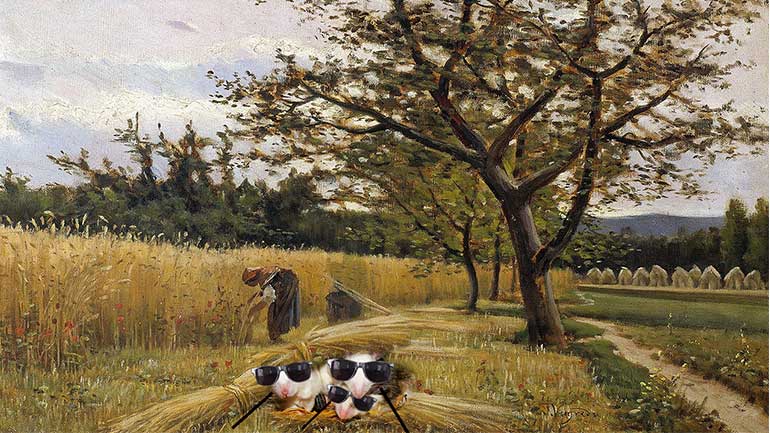ShmoopTube
Where Monty Python meets your 10th grade teacher.
Search Thousands of Shmoop Videos
Abolitionists and Antislavery Movements Videos 3 videos
AP U.S. History Exam 2.18. Which of the following had the greatest impact on the rise of the abolitionist movement that is described in the excerpt?
AP U.S. History Exam 2.20. Based on the argument in the excerpt, many abolitionists would have been likely to support...what?
AP U.S. History 3.2 Period 4: 1800-1848. The goals presented in the excerpt have the most in common with which of the following?
AP U.S. History Exam 2.18 167 Views
Share It!
Description:
AP U.S. History Exam 2.18. Which of the following had the greatest impact on the rise of the abolitionist movement that is described in the excerpt?
Transcript
- 00:00
[ musical flourish ]
- 00:03
And here's your Shmoop du jour, brought to you by the Great Awakening,
- 00:06
the friendliest alarm clock of all time. [a woman looking happy while waking up to the alarm]
- 00:09
All right, check out the excerpt.
- 00:11
[ mumbles ]
Full Transcript
- 00:18
Okay, and the question:
- 00:19
Which of the following had the greatest impact on the rise of the abolitionist movement
- 00:23
that is described in the excerpt?
- 00:25
And here are your potential answers.
- 00:27
[ mumbles ]
- 00:29
Well, in the early 1800s, the abolitionist movement [a man reading newspaper while smoking]
- 00:32
continued the conversation over slavery that had been abolished
- 00:36
by the founding fathers during the Constitutional Convention.
- 00:39
Was this rise of abolitionism most impacted
- 00:42
by the B - African colonization movement?
- 00:45
Hmm. Well, although some people wanted to see [a ship sailing through the sea]
- 00:47
the freed African Americans return to Africa,
- 00:50
the key goal of abolitionists was getting rid of slavery,
- 00:53
not getting rid of those who were slaves.
- 00:55
Could the burgeoning abolitionist movement have been affected
- 00:58
by C - the end of the slave trade? [image of a field with small plants]
- 01:00
Well, even though the slave trade was abolished in 1808,
- 01:03
slavery itself was still legal in much of the U.S.
- 01:06
during the mid-1800s.
- 01:07
These questions of legality also affected Western expansion,
- 01:10
with new territories having to decide whether they'd be slave
- 01:13
or free. But those two factors didn't affect
- 01:16
beginnings of the abolitionist movement. Which means
- 01:19
the rise of abolitionism was most impacted by A - [image of a wheat field]
- 01:22
the Second Great Awakening.
- 01:24
During the early 19th century, a religious revival
- 01:27
known as the Second Great Awakening swept across the country.
- 01:30
In their sermons, the leaders of this movement
- 01:32
preached freedom to people of all kinds, helping plant the seeds [a man sweeping the floor]
- 01:36
of the early abolitionist movement.
- 01:37
So A is the correct answer.
- 01:39
The Second Great Awakening really opened the eyes of
- 01:41
men and women across America, helping them no longer be blinded [image of many eyes rolling]
- 01:44
to the horrible sight of slavery in the South.
- 01:47
The friendliest alarm clock of all time.
Related Videos
Ever heard of a "living document"? They eat and breathe just like the rest of us! They even walk around on their own two legs. Okay, fine—maybe t...
If the Puritans had gotten their way, religion would play a much larger role in lawmaking these days. Want to know more? Watch the video for all th...
What happened between the creation of the Articles of Confederation and the ratification of the current U.S. Constitution? This video analyzes the...
The Modernists thought the world had a lot of problems, and they were intent on fixing them—or at least talking about fixing them. Unfortunately,...
This video explains Federalism and the quest for a fair balance between state and national power. It covers the progression and compromises of Fede...







